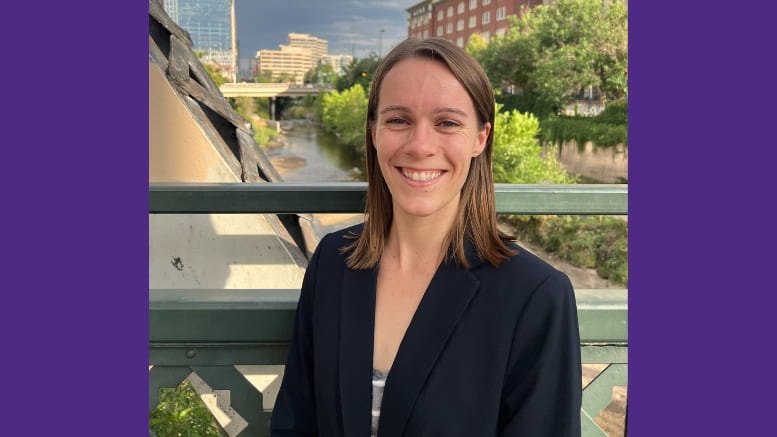Meet Renee Wellman, who graduated from Northwestern University in 2016.
What inspired you to pursue study in the Environmental Policy and Culture Program?
I knew from an early age that I cared deeply about nature and would likely pursue a career working to protect the environment. While growing up in Indiana, I have distinct memories of middle school science classes learning about both climate change and the negative impacts of industrial agriculture on water quality and native ecosystems. I knew I needed to do something to address these complex problems. The EPC program was a great fit for exploring the social and political sides of environmental issues, because I wanted to help implement the scientific and technical solutions that already existed.
How did your studies in the EPC Program impact you personally and/or professionally?
Coursework in the EPC program provided a great foundation for me to learn more about substantive environmental problems from scientific, historical, and political perspectives. I questioned assumptions I made about environmental progress and considered how I could best make an impact on the issues I cared about. However, my time outside the classroom proved equally valuable as I tried countless internships with the Sierra Club and NRDC, research experiences on campus, and participated in many student organizations on campus including Wild Roots, Real Food at NU, and the Athletics Sustainability Committee. EPC course work provided the vocabulary and context to understand the different approaches I experimented with outside of class. In particular, I saw the power of strategic grassroots organizing lead to real environmental progress on campus and in clean energy policies across the state of Illinois. I knew I wanted to educate and mobilize everyday people around environmental issues in ways that could convince elected officials or corporations to pass and implement better environmental policies.
Is there a specific course, event, or memory associated with the EPC program that sticks out to you from your time at NU?
I have distinct memories of a seminar class with Professor Woodhouse focused on the concept of wilderness and our discussion of Bill Cronon’s essay, “The Trouble with Wilderness.” There is a lot worth unpacking in that essay, but I appreciated the point that we need to value “wilderness” and nature in all its forms and not let the hard-to-define, perfect version of nature be the enemy of the good. In my current work, I think about how environmental progress does not need to be a zero sum game and we can find value in small patches of nature as well as incremental, tangible progress in environmental policy.
What are you working on right now that excites you the most, OR are there any accomplishments you would like to share?
As the Executive Director of Green Corps, I am excited by the many issue campaigns and organizations that Green Corps organizers get to support each year as well as the ongoing impact of our training program’s alumni on the broader environmental movement. In the last couple years, my team has supported the work of the Arctic Refuge Defense Campaign in protecting the Arctic National Wildlife Refuge from fossil fuel development, Toxic-Free Future’s efforts to reduce the use of forever chemicals, the calls for new marine protected areas and wildlife corridors with Environment America, among many other efforts. I also take pride in the careers of Green Corps organizers I have trained since 2016. My former organizers have gone on to start their own nonprofits and lead their own campaigns on issues ranging from protecting rooftop solar policies in California, to protecting endangered species, to advancing municipal public transportation policies. I am constantly inspired by the ripple effects of smart grassroots organizing.
What fun fact do you want to share with the Northwestern community?
I also ran cross country at Northwestern. Outside of practice and class work, I loved biking and running everywhere from Wilmette to Edgewater. Many Northwestern alumni provide the great advice of exploring Chicago, but I believe the best adventures will happen on foot and off the beaten path of the “L.”
How do you enjoy spending your free time?
Similar to my time at Northwestern, I still enjoy spending my free time running the parks and trails of Denver, Colorado and reading. I always recommend the writing of Barbara Kingsolver for her fascinating characters and unique takes on environmental issues.

